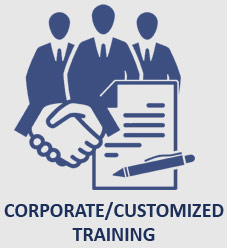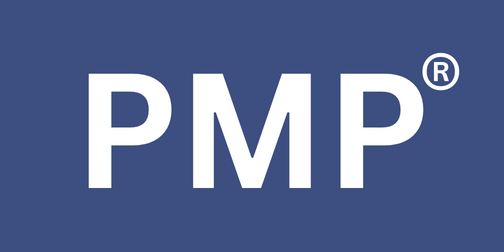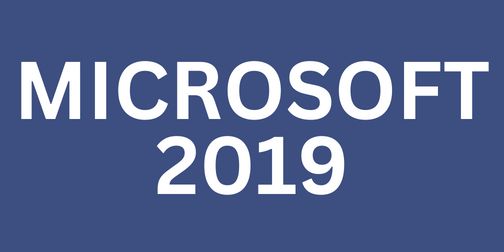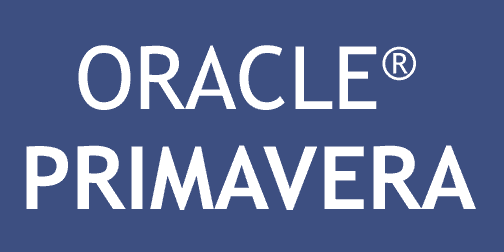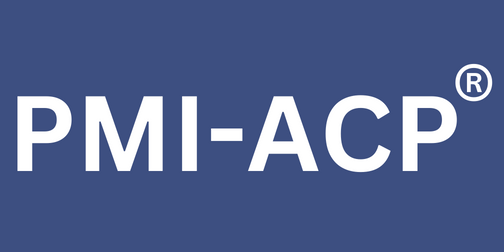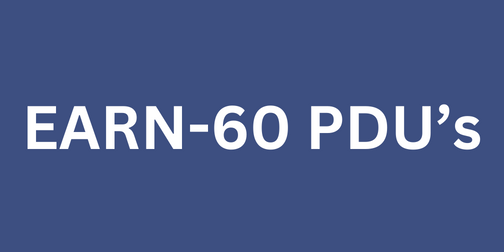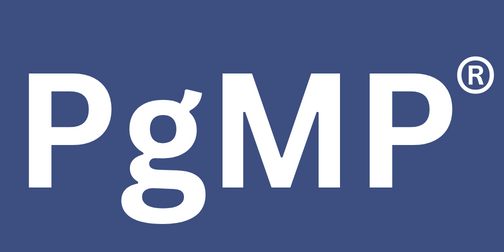
Conquering the PMP® Exam: Top Tips and Strategies for Success
Posted On May 14, 2024 - 16:33 PM
Future project managers still find great value in earning the Project Management Professional (PMP) credential, which is becoming increasingly significant in the fast-paced business environment of today. Here are some convincing arguments for doing so, as well as advice on how to pass the PMP exam.
Obtaining this popular certification points to your knowledge of the basic concepts and processes provided by the Project Management Institute (PMI), the world's top organization for project management. However, PMP's advantages go well beyond awareness.
Why the PMP® Certification Matters
For project managers, the PMP® certification is a potent differentiator in the fast-paced business environment of today. Obtaining this internationally recognized certification attests to your proficiency in the foundations of project management as outlined by PMI, the preeminent global organization. This results in substantial benefits for your professional life. Gaining the PMP® increases your employability, gives you access to a broader choice of project opportunities, and puts you in a position to potentially get paid more. In addition, the process of preparation itself gives you a thorough grasp of best practices in project management, honing your abilities and improving your effectiveness as a project manager. In the end, having the PMP® certification validates your dedication to quality work and gives you the ability to confidently handle the challenges of project management.
PMP®'s Persistent Relevance in 2024:
Growing Need for Project Management Project managers will need to fill 22 million additional positions by 2030, according to PMI, underscoring the demand for qualified candidates. Your PMP certification gives you the know-how to succeed in this expanding industry.
-
Internationally Acknowledged Credential: The PMP is a globally acknowledged emblem of project management expertise, providing access to professional prospects in a wide range of sectors and regions.
-
Changing to Fit the Times: The cornerstone of the PMP test, the PMBOK® Guide, is revised frequently to take into account new developments and best practices. This guarantees that PMP holders have the most up-to-date information necessary to succeed in the project environment of today.
-
Shows Commitment to Excellence: Getting certified as a PMP demonstrates your commitment to ongoing education and professional growth, two attributes that employers respect.
-
Increases wage Potential: Research indicates that PMP holders can demand a greater wage as compared to those who are not qualified.
-
Improves Project Management Skills: The planning phase helps you get a deeper grasp of best practices, knowledge domains, and project management processes, which translates into more effective and successful project execution.
PMP®: A Growing Force:
According to PMI, there will be a need for almost 88 million project managers by 2027, making PMP®: A Growing Force:
-
Expanding Job Market: The project management industry is seeing rapid growth. The PMP certification puts you in a position to benefit from this expansion.
-
Continuous Improvement: To reflect changing project management techniques and industry best practices, PMI regularly updates the PMBOK® Guide and the PMP exam. By doing this, PMP holders are guaranteed to stay at the top of their field.
-
Adapting to Change: The PMP curriculum places a strong emphasis on flexibility and adaptation, two qualities that are essential for negotiating the constantly shifting landscape of projects.
-
Lifelong Learning Culture: A culture of lifelong learning is fostered by acquiring the PMP certification, which encourages a dedication to lifelong learning and continual professional development to remain relevant in a rapidly evolving field.
-
Gaining reputation: Employers strongly respect the PMP certification because of its growing global reputation and significance.
Getting Ahead on the PMP® Exam: Key Advice
Dedicated work and thoughtful planning are necessary to obtain your PMP certification. The following are some practical methods to assist you ace the test:
-
Learn the PMBOK® Guide: The basis of your studies is this extensive resource. Take the time to become familiar with its language, knowledge areas, and processes related to project management.
-
Enhance Your Education: Examine other materials such as study guides, tutorial videos, online courses, and practice tests. To accommodate your learning style, diversify your approach to learning.
-
Create a Successful Study Schedule: Make a reasonable timetable that takes into account your learning preferences and obligations. Aim for frequent study sessions because consistency is essential.
-
It Takes Practice to Make Perfect: Use practice tests to find your skills and shortcomings, replicate the experience of taking a real test, and improve your test-taking techniques.
-
Getting Ahead on the PMP® Exam: Key Advice Dedicated work and thoughtful planning are necessary to obtain your PMP certification. The following are some practical methods to assist you ace the test:
-
Learn the PMBOK® Guide: The basis of your studies is this extensive resource. Take the time to become familiar with its language, knowledge areas, and processes related to project management.
-
Enhance Your Education: Examine other materials such as study guides, tutorial videos, online courses, and practice tests. To accommodate your personal learning style, diversify your approach to learning.
-
Create a Successful Study Schedule: Make a reasonable timetable that takes into account your learning preferences and obligations. Aim for frequent study sessions because consistency is essential.
-
It Takes Practice to Make Perfect: Use practice tests to find your skills and shortcomings, replicate the experience of taking a real test, and improve your test-taking techniques.
-
Practice makes perfect: so make the most of mock examinations to find your strengths and weaknesses, replicate the real testing environment, and improve your test-taking techniques.
-
Prioritize comprehension above memorization: Aim for a thorough understanding of project management principles. You won't do well on the test if you memorize things by heart.
-
Join a Study Group: Work together with other prospective PMP candidates to exchange knowledge, provide motivation, and gain experience through group discussions.
-
Take Care of Yourself: Make sure you get enough sleep, learn how to handle stress, and put your health first during the planning process.
Leading Pointers for PMP® Exam Readiness:
Improve Your Techniques to Win the Test
Being certified as a PMP® needs planning and concentration. To help you ace the exam, consider these excellent tips:
-
Master the PMBOK® Guide: Your exam bible is this PMI publication. Spend some time learning about its procedures, subject areas, and jargon related to project management.
For targeted learning, think about utilizing study materials or classes that are in line with the PMBOK® Guide.
-
Expand Your Education Tools: Don't confine yourself to a single medium. To meet your learning needs, check out a range of tools such as extra study guides, video lectures, practice tests, and online tutorials.
-
Make a Well-Guided Study Plan: Make a realistic schedule that accommodates your preferred learning style and work-life balance. Divide the content into digestible portions and establish attainable objectives.
The secret is to be consistent! Even if your study sessions are brief and frequent, try to schedule regular ones.
-
Practice (and preparation) make perfect: Use practice tests to get a feel for what it's like to take an exam. Evaluate your work to find areas where you still lack expertise and monitor your development.
Prioritize comprehending the "why" behind incorrect responses rather than merely learning the right ones by heart. Apply what you've learned to related ideas.
-
Go Beyond Rote Memorization: Aim for a thorough understanding of project management ideas rather than just rote memorization. On the test, rote memory will not be enough.
Practice using what you've learned in practical project circumstances. This improves your comprehension and sharpens your problem-solving abilities.
-
Find Your Study Tribe: Get motivated, share knowledge, and practice with other PMP candidates by joining a study group.
Discussions in groups can help you stay accountable, clarify ideas, and provide many viewpoints.
-
Put Your Health First: During your preparation process, make sure you get enough sleep, learn how to handle stress, and put your health first.
A sound body and mind are necessary for optimal exam performance.
-
Extra Advice:
Before the exam, familiarize yourself with the format and sorts of questions.
Acquire efficient test-taking techniques such as critical thinking and time management.
For further assistance, make use of PMI's tools, which include the exam content outline and PMP Handbook.
Conclusion
Closing: Getting Ready for PMP® Achievement
Although the PMP® exam may seem overwhelming, you may approach it with confidence if you have the correct techniques and steadfast focus. You can create a strong foundation for success by becoming proficient with the PMBOK® Guide, broadening your learning strategies, and creating an effective study schedule. Always keep in mind that practice makes perfect, so use practice exams to hone your exam-taking techniques and pinpoint your areas of weakness.
A worthwhile investment in your project management career is obtaining your PMP® certification. You'll be well-prepared to ace the test and open up a world of fascinating options in the rapidly expanding profession of project management if you adhere to these excellent advice and techniques. Thus, inhale deeply, make a commitment to the voyage, and set off on the road to PMP® success!











